In Sunlight and in Shadow
by Mark Helprin
Lush, poetic and elegant, Mark Helprin's writing has garnered many accolades and a legion of loyal readers. It has been seven years since the publication of Helprin's previous novel, Freddy and Fredericka, and as he has done over the course of the last four decades, he has rewarded the patience of his fans with a rich, languorous tale that demands to be savored slowly. Never fitting neatly into any specific genre, Helprin's work has often featured elements of magic realism and satire that complement his extravagantly lovely prose. While In Sunlight and in Shadow proves a departure from those elements--its action, setting and characters are quite straightforward--it does return to themes that Helprin has explored before; among them, post-World War II America (specifically, a gorgeously detailed New York City), the examination of class division in society and, perhaps most importantly, the nature of love.
In Sunlight and in Shadow begins, as so many love stories do, with a chance encounter. It's May of 1946 and Harry Copeland has recently returned to his home in Manhattan from his tour of duty as an elite paratrooper in the 82nd Airborne. The heir to Copeland Leather, the well-regarded luxury leather goods business his father founded, Harry spends much of his time running through the city--an effort to keep his postwar stress at bay. "And if there were a way to come from darkness into light," Helprin writes of Harry, "and to stay there as long as life would allow, he wanted to know it. He was thirty-two, the war was over, and he wanted to leave even the shadows that he himself had made and to which he feared he was becoming a lifelong apprentice. But he could not imagine how." Immersed in these dark thoughts as he waits to board the Staten Island Ferry, Harry spies a beautiful young woman dressed in white. Within a moment she is gone, but Harry is completely smitten: "For him, beauty was something far more powerful than what fashion dictates and consensus decrees. It was what both creates love and what love creates."
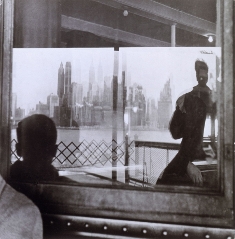
The woman is Catherine Thomas Hale, the only child of one of New York's wealthiest families. But Catherine, who is as taken with Harry as he is with her, is reluctant to give Harry her real name and offers instead her stage name. An actress and singer, she is about to debut in a Broadway show. The two meet for lunch and then dinner, falling irrevocably in love with each other before Catherine reveals her real identity and also that she is engaged to Victor Marrow, the scion of another wealthy New York family. Their impending marriage, in fact, is more of a merger than a love match. Catherine tells Harry that the much-older Victor raped her when she was 13 and has been taking advantage of her since. Still, Catherine can't see a way to get out of the marriage to mean and vengeful Victor. A massive engagement party is being planned and she feels obligated.
But Harry is a man who has been renewed by love and will not be deterred. However, while plotting how to crash the engagement party and spirit Catherine away, Harry runs into some serious problems of his own. The mob, in the form of a quietly sinister boss named Verderamé, is squeezing Harry for protection money at quadruple the rate of every other business in the neighborhood. Why Verderamé wants to put Copeland Leather out of business is not explained, but Harry--beaten to within an inch of life when he tries to reason with the mobster--must either capitulate (impossible) or lose the business his father worked so hard to create. Harry gets his girl--the sequence where he storms the engagement party and leaves with Catherine is one of the most dazzling in a novel filled with beautifully written passages--but once he does his troubles multiply. Now he has both Verderamé and Victor gunning for him. Full of love for Catherine, yet still haunted by the war, Harry devises a dangerous all-or-nothing plan to take out his enemies and plunges into it headlong.
At 700 pages, In Sunlight and in Shadow is not a novel that can be rushed through. Indeed, it unfolds like a particularly intricate dreamscape where its characters and plot are revealed in small, jewel-like details. Helprin's gift for description cannot be overstated and his ability to convey the effects of war on both the micro and macro levels is extraordinary. The freighted love that Harry and Catherine share and the specter of violence form a delicate counterpoint, the sunshine and shadow of the title. But as the novel reaches its end, it becomes apparent that only one--love or war--will emerge triumphant. Richly atmospheric and beautifully written, In Sunlight and in Shadow is a paean to love that will linger long in the imagination. --Debra Ginsberg, author
Photo: Staten Island Ferry by Louis Faurer (The Jewish Museum)



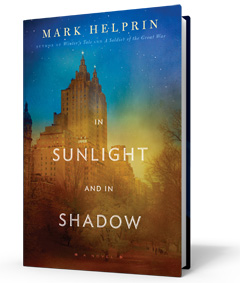
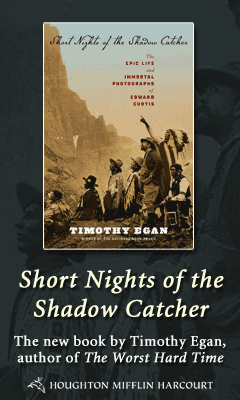
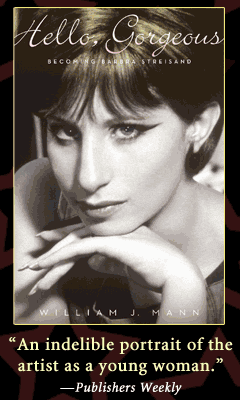
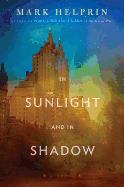

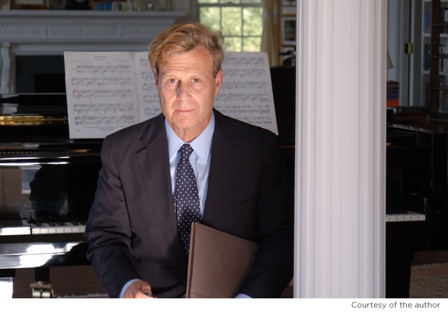 Mark Helprin is the acclaimed author of Winter's Tale, A Soldier of the Great War, Freddy and Fredericka, The Pacific, Ellis Island, Memoir from Antproof Case and numerous other works. His novels are read around the world, translated into more than 20 languages.
Mark Helprin is the acclaimed author of Winter's Tale, A Soldier of the Great War, Freddy and Fredericka, The Pacific, Ellis Island, Memoir from Antproof Case and numerous other works. His novels are read around the world, translated into more than 20 languages.